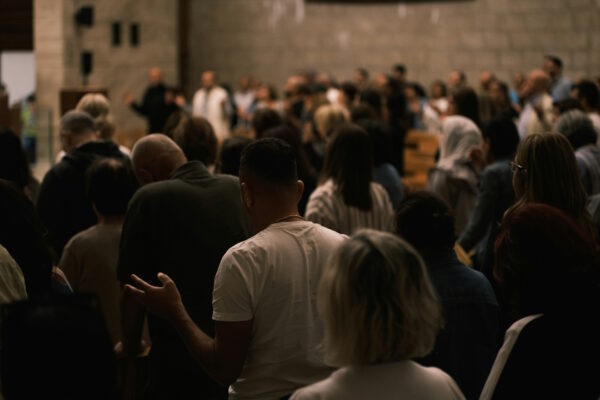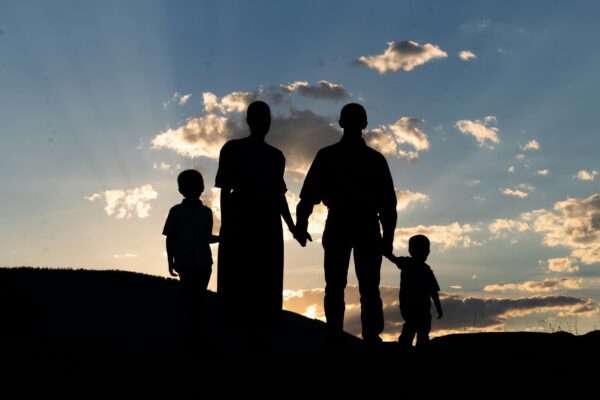In the last few posts we have been considering the Sermon on the Mount as our guide for living “right-side up” in an upside-down world as followers of Jesus. In verses 13-16 describes the distinctive witness of the disciple, revealing that the citizens of his kingdom are to put his saving rule on display before the world. In fact, he commands it. “Disciples must function in society as an alternative and challenging community.”1Richard T. France, “Matthew,” in New Bible Commentary: 21st Century Edition, ed. D. A. Carson et al., 4th ed. (Leicester, England; Downers Grove, IL: Inter-Varsity Press, 1994), 910.
Jesus illustrates this with two images. First, he says, “You are the salt of the earth” (Matt. 5:13). In its biblical context, this expression means those who belong to Christ are the true people of God, the covenant faithful. Like salt, Christians are to flavor the earth with the distinct taste of the kingdom by our attitudes, actions, and speech. Like salt, we are to be a preservative and purifying agent in a corrupt world. “Salty” disciples are authentic disciples.
In this post we will consider the second image Jesus uses: the imagery of light. As with salt, to understand the imagery of light, we need to look at the OT context. When we do, we will discover that it is has nothing to do with America, shining as a beacon of hope to the world. Rather, it is all about Jesus and his church shining in the midst of a darkened world.
Who the Light is
You are the light of the world. A city set on a hill cannot be hidden (Matthew 5:14)
Light most frequently symbolizes purity and goodness as opposed to filth and wickedness. It symbolizes truth and knowledge as opposed to error or ignorance. It symbolizes God’s presence as opposed to his abandonment.2D. A. Carson, “Matthew,” in The Expositor’s Bible Commentary: Matthew, Mark, Luke, ed. Frank E. Gaebelein, vol. 8 (Grand Rapids, MI: Zondervan Publishing House, 1984), 139 It symbolizes his favor, his blessing, his life, and his salvation. Therefore, John writes: “God is light, and in him is no darkness at all” (1 John 1:5). Paul says God “alone has immortality” and “dwells in unapproachable light” (1 Tim. 6:16). In the new creation, there will be no need for lamp or sun, for God is the everlasting light (Isa. 60:19-20; Rev. 22:5). So, in this sense, it is God who is the light of the world (Ps. 36:0; 119:130; Rom. 1:19-20).
However, the light of God’s grace and truth in particular shone on his people, Israel (Ex. 10:23!). They were the recipients of his revelation, his promises, and his presence. They were his “radiant” people. God chose Israel to be his servant in the world (Isa. 41:8-9). In Isaiah we read that he gave his servant Israel as a light for the nations (42:6; 49:6). It was Israel’s privilege and responsibility to show to all the world how beautiful it is to live for God according to his word (42:21). As N.T. Wright puts it, “Israel was the people through whom God intended to shine his bright light into the world’s dark corners, not simply to show up evil but to enable people who were blundering around in the dark to find their way.”3Tom Wright, Matthew for Everyone, Part 1: Chapters 1-15 (London: Society for Promoting Christian Knowledge, 2004), 40. They were to walk in the light of Yahweh (Isa. 2:5; cf. Rom. 2:19) But they failed. They were unfaithful to the “trust” that they had received from God. By failing to believe his words—to keep his words and enjoy life under the blessing of his loving rule—they failed to be a light to the nations. They failed to keep covenant and make his glory known in all the earth.
However, though Israel “loved the darkness rather than the light because their works were evil” (John 3.19), God was not about to abandon his purposes for Israel or the world. Instead, the true light, which gives light to everyone, came into the world. This God did when he sent his Son, Jesus, to be the servant. Jesus came to do what Israel as a nation had failed to do. He came to offer up the obedience of faith that Israel had failed to offer. He came as a light for the nations that God’s salvation might reach to the ends of the earth. He came to shine the light of God’s grace upon a world darkened by sin. Jesus proclaimed: “I am the light of the world.” This is true because he is both the true God and the true servant. But then he says: “Whoever follows me will not walk in darkness, but will have the light of life” (John 8:12). Through the gospel, his life becomes our life. His light becomes our light.
And this is why Jesus here can say to his disciples: “You are the light of the world!” Those who belong to Jesus belong to the true Israel of God. United to Jesus, we become radiant like he is. We have been called out of darkness and into his light. Jesus would die and rise again to give us his life. At one time we were darkness, but now we are light in the Lord (Eph. 5:8). We are children of light (1 Thess. 5:5), who bear the fruit of light (Eph. 5:9) as we shine like stars in the world (Php. 2:15). We are to cast of the works of darkness and put on the armor of light (Rom. 13:12), to walk in the light as God is in the light (1 John 1:7), to be radiant with the glory of Christ as we bear his image.
Notice what Jesus says next: “A city set on a hill cannot be hidden.” Why does he say this? He’s about to talk about lamps shining, but first he talks about a shining city. Why? In one sense, a city with its lights on a hill would be very noticeable in a dark countryside (with no streetlights). Cities were visible. But there’s more to this reference. He’s saying that his disciples are like a radiant city set on a hill. This is an allusion to Isaiah and the description of Zion, the city of God that shines with his glory.
Arise, shine, for your light has come, and the glory of the Lord has risen upon you. For behold, darkness shall cover the earth, . . . but the Lord will arise upon you, and his glory will be seen upon you. And nations shall come to your light, and kings to the brightness of your rising (Isaiah 60:1-3).
This is the city that John describes in Revelation 21 that comes down out of heaven and is set on a hill/mountain, the city that shines with the glory of God, the future city that exists even now in the present in the midst of cities of men. In other words, disciples are citizens of the new Jerusalem.
What the Light does
“Nor do people light a lamp and put it under a basket, but on a stand, and it gives light to all in the house. In the same way, let your light shine before others so that they may see your good works and give glory to your Father who is in heaven” (Matt. 5:15-16)
Just as cities on hills can’t be hidden, and lamps are not meant to be put under baskets, Christ has shone on us that we might shine! But there’s an implicit warning here, isn’t there? Just like salt can lose its saltiness, then light can become darkness.4John R. W. Stott, The Message of the Sermon on the Mount (Matthew 5-7): Christian Counter-Culture, The Bible Speaks Today (Leicester; Downers Grove, IL: InterVarsity Press, 1985), 62. We can fail to let our light shine. How do we do this? By concealing the truth that we know, and hiding the truth of what we are. By failing to walk in the obedience of faith, and refusing to bear witness to the risen King. By not adorning the gospel, and not bearing the name of Christ rightly. For others to see our light shine is for them to see our good works. These are the words we say, the truth we proclaim, the deeds we do, the love we show. Good works are anything said or done in faith for the glory of God and the good of others. It’s the fruit of light, what is good, right, and true.
However, our good deeds should be the kind of good deeds that bear witness to the gospel of God’s grace. Our good deeds should communicate that our light is only a reflection of Christ’s light. We should live that all might see “the strength to follow your commands could never come from me.” Unbelievers can do good works, but Christians are to be marked by a supernatural love and grace, by an other-worldly joy and peace, by an unheard of forgiveness and devotion. Christians are to be consistently fair and just, truly impartial and merciful, always longsuffering and understanding. “So it is the light they will praise, not the lamp which bears it; it is our Father in heaven whom they will glorify, not the children he has begotten and who exhibit a certain family likeness.”5Stott, The Message of the Sermon on the Mount (Matthew 5-7), 62–63
Conclusion
To shine, we must look to Christ the King. We must lift our eyes, for “those who look to him are radiant” (Ps. 34:5). We must behold God’s glory in the face of Christ that we might be transformed into his image (2 Cor. 3:18), that our bodies might be full of his light (Matt. 6:22). And we do this by turning to his Word. The Bible shows us God’s character, his works, and all his ways, and it “brightens the eyes” (Ps. 19:8). The unfolding of his words gives us light (119:130).
As objects that glow in the dark must first be exposed to a light source to absorb that light, so we must constantly be exposed to the light of the gospel of the glory of Christ. To shine, we must do the works of faith. The light of Christ has shone on us that we might live a life empowered by his Spirit, marked by joy and peace, with a faith that works through love.




